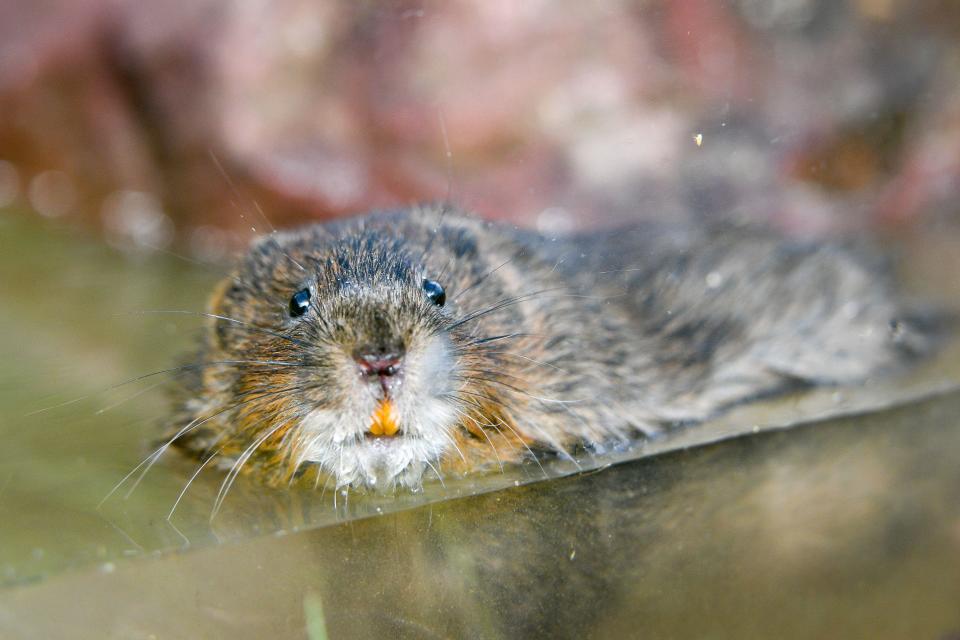Wildlife charity makes plea to protect water voles

A wildlife charity has started an appeal for volunteers to help count and spot the signs of water voles.
It comes after more than 200 voles were reintroduced at Trentham Gardens, in Stoke-on-Trent, two years ago as part of an important recovery programme.
Populations have plummeted by 90% since the 1970s, according to the People's Trust for Endangered Species (PTES), and now the charity is in need of "water vole watchers".
Duncan Coleman, a wildlife ranger at Trentham Gardens, said: "Water voles are actually one of the fastest declining mammals in the UK and that's mainly through habitat loss and also the activities of the invasive mink."
He continued: "I think the key thing with any species in the wild is we need to know numbers, so biological recording is really important."
From 15 April to 15 June, volunteers are being asked to visit their nearest stream, river, ditch or canal in search of water voles.
Tell-tale signs include feeding stations, burrows in the riverbank, piles of droppings or listening out for their characteristic "plop" as they dive into the water.

PTES water vole officer Emily Sabin said: "We are looking for our next generation of water vole watchers to get on board with our water vole monitoring survey.
"We do not expect everyone to be experts, we have got lots of training and guidance as well.
"Often you are just looking for the signs that they leave behind; so clues such as their droppings."
The results from the survey will help conservationists find where water voles are living, how their populations are changing each year and, most importantly, where they are no longer found.
This data is crucial so PTES can understand where water voles need the most help and implement targeted conservation efforts to help prevent further decline.
Follow BBC West Midlands on Facebook, X, and Instagram. Send your story ideas to: newsonline.westmidlands@bbc.co.uk


